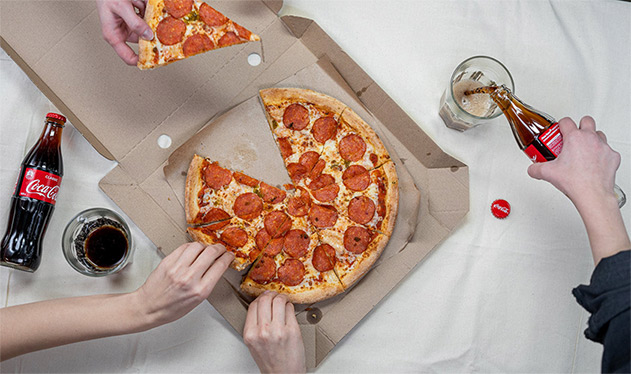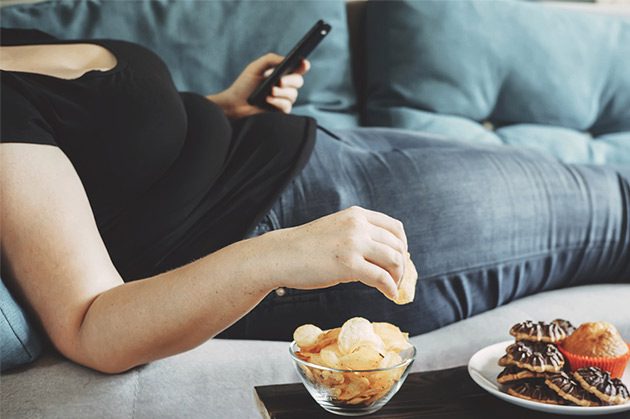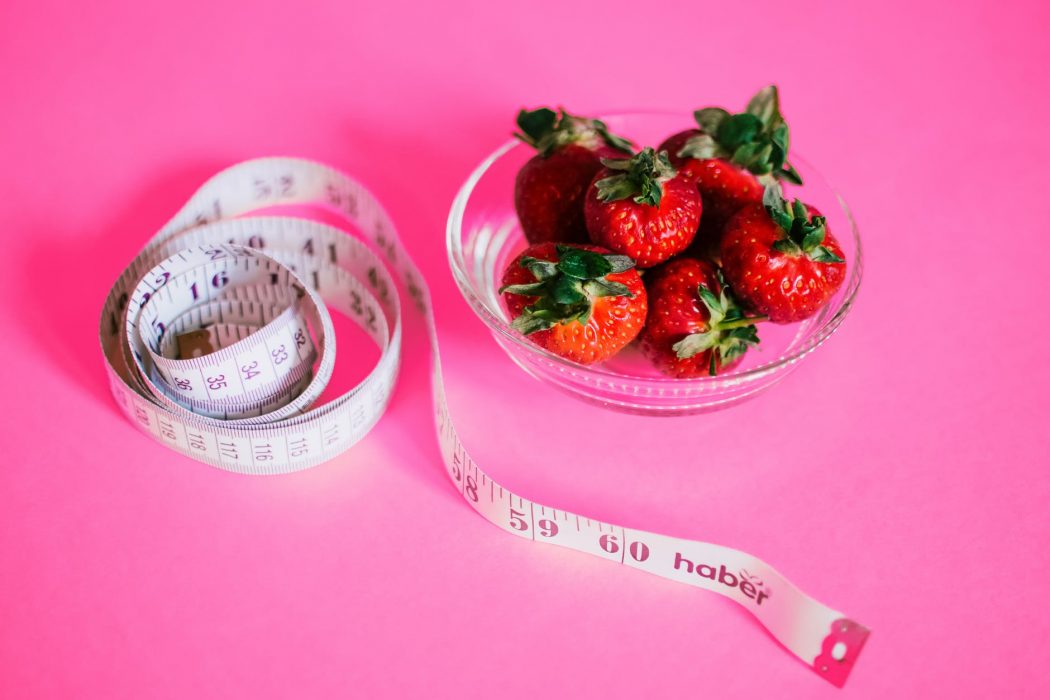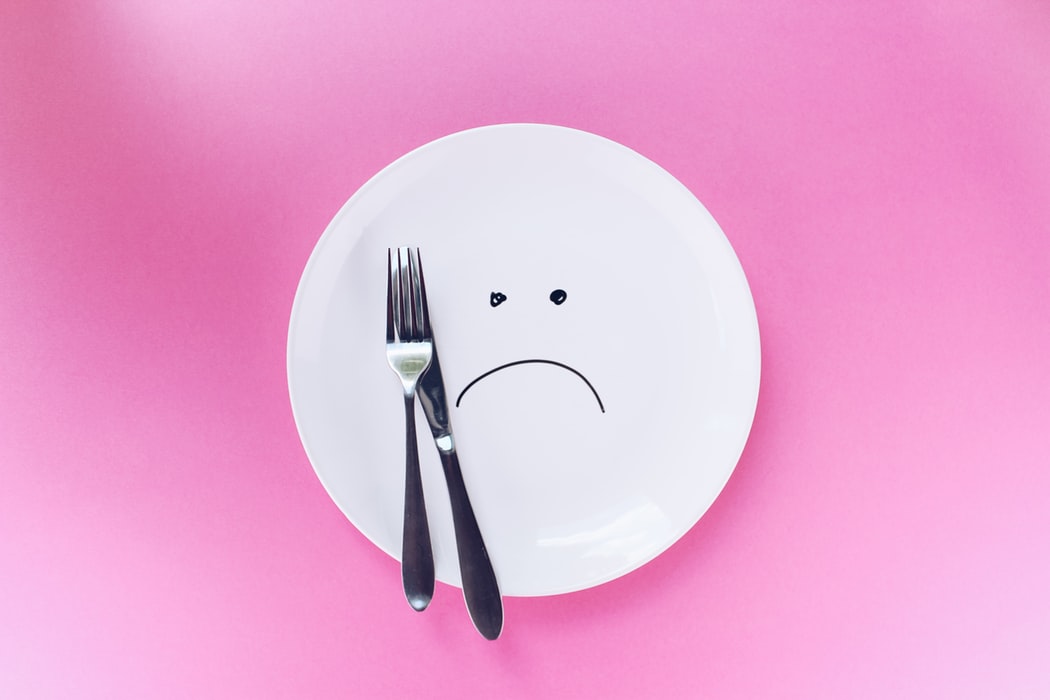There’s been a sizable amount of overt fat shaming during the COVID-19 pandemic which adds pressure to the great number of people with a Binge Eating Disorder in Australia. People make jokes casually to their friends, family and co-workers about how they’re going to come out of this a lot fatter or how they’re avoiding ‘ISO-ARSE’.
Binge Eating Disorder (BED) is one of Australia’s most prevalent eating disorders but perhaps the most under-recognised, and the extreme uncertainty of COVID-19 has exacerbated the symptoms for many.
For example, seeing photos of supermarkets filled with empty shelves, home isolation’s increased exposure to food, disruption to food shopping, increased focus on our bodies and the inability to receive face-to-face or group support are all triggers for people with BED.
BED is a psychological illness thatis characterised by a person frequently eating excessive amounts of food and feeling that they’re unable to stop, often when not hungry. In Australia around 913,986 people have an eating disorder, of those people 47 per cent have a binge eating disorder.
BED can be triggered by an inability to cope and process emotions such as stress, anger, boredom, distress, traumatic experiences and genetic predisposition.

Psychologist and Manager of the Butterfly National Helpline Juliette Thomson says during isolation, stress and a change in routine can cause anyone with BED to have increased behaviours and thoughts about their illness.
Ms Thomson says eating disorders thrive on isolation environments and that people with BED should turn to crafting, journaling or reaching out to friends to distract them from their eating behaviours and thoughts.
Perth Psychologist, Sherry-Lee Smith says that people with BED may have increased behaviours at this time. “As people with Binge Eating Disorder often use food as a way to soothe emotional distress and boredom,” say says.
She says “We know from data from other outbreaks, such as SARS and Ebola, that the psychological impact of quarantine, including isolation and loneliness, is likely to increase the incidents of acute stress, post-traumatic stress, depressive symptoms, low mood, irritability, insomnia, anger, fear, sadness and grief.”
Many people who suffer from an eating disorder have suffered psychiatric comorbidity whereby linked additional conditions co-occur with a primary condition such as anxiety or depression.
Research shows that women with eating disorders have a higher prevalence of anxiety than men.
Jerita Sutcliffe is a 25 year old young woman from Perth, Western Australia who has BED and says it has affected every aspect of her life.
“It’s a vicious cycle of a poor and unhealthy coping mechanism,” she says, “I then get depressed about my weight and appearance and binge eating then transforms from an unhealthy coping mechanism to a method of self- harm.”

Due to a weak immune system from her chronic illness, Jerita is in a high-risk category and hasn’t been seeing her friends or her family during COVID-19 which, she says, has negatively impacted her mental health.
As a result she has turned to food to numb the pain of isolation and loneliness, although this is only a band-aid solution.
Not everyone recognises BED as a serious condition and in fact the condition only received formal recognition as a distinct eating disorder in 2013, in the Diagnostic and Statistical Manual of Mental Disorders, Fifth Edition (DSM-5.)
It is no wonder people with this condition feel this illness is misunderstood as it has only been accepted as a formal illness in the last decade.
Jerita feels people don’t take an eating disorder seriously when one is overweight, she says “It’s just easier to see a person as ‘lazy’, ‘overweight’, ‘a slob’ or ‘a glutton’ rather than see the truth that this is a serious mental illness.”
Contrary to popular to belief, having BED does not necessarily mean someone is overweight, but it is a serious mental illness affecting a large proportion of our population.
People with BED often have feelings of shame or guilt about eating, and eat in private or avoid social situations, particularly those involving food.

“I don’t enjoy eating out in public or even simply being in public because I am constantly worried about the opinions that strangers have of me, based solely upon my appearance.”
Lucia Picerno, a designer from London took to Instagram with a powerful message; “the pandemic is not an excuse to fat shame” she continues, “A lot of people are posting memes that make fun of fat bodies … is it really your worst nightmare in this pandemic to end up looking like me?”
While the COVID-19 pandemic has increased the behaviours and thoughts of BED for many, treatment has become less accessible.
Ms Smith says the pandemic has created barriers for people to seek usual treatment including group programs, and “inability to attend even telehealth sessions if their significant others are unaware of the eating disorders.”
If you need help with your Binge Eating Disorder here are some tips:






